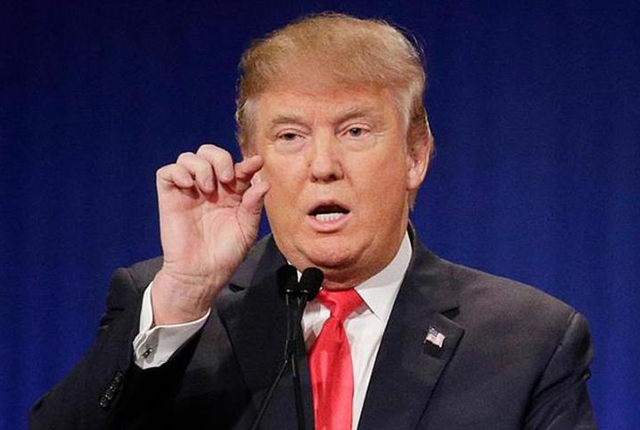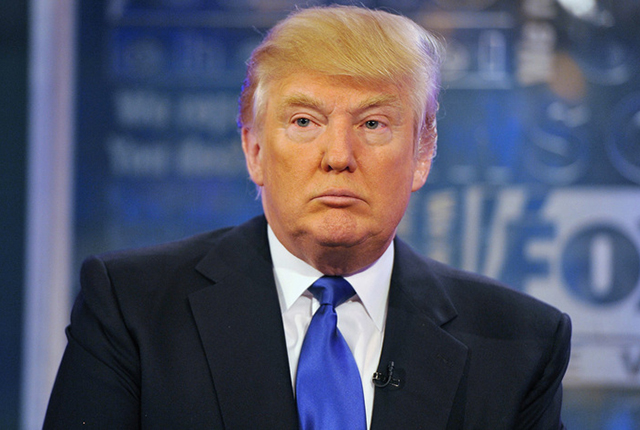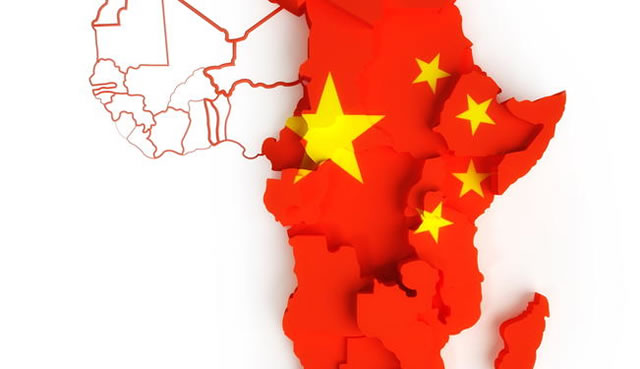Trump presidency: What Africa, Australia must do

Karamzo Saccoh Correspondent
With Trump’s America First campaign, African nations need to craft a coherent regional foreign policy approach for development and security cooperation with external actors to benefit Africans. Meanwhile, Australia should take every step to ensure its investments and security engagement do not result in the destabilisation of African countries.
From being the most unlikely candidate for the Republican Party to becoming the president of the world’s most powerful country, Donald Trump’s presidency will have profound ramifications for global politics.
Here we have a man who, despite being the underdog in the 2016 US elections, holding views that divided the Republican Party and the American people, threatening the deportation of Mexicans, wanting to ban the entry of Muslims and asylum seekers into the US, never holding a public office and boisterously misogynistic, is now president of the world’s sole, but retreating superpower.
With this and the growing uncertainty that the world is faced with, Trump’s presidency is a global risk and one that will have significant repercussions, politically for Australia and Asia, and economically for Africa.
During the election season, US diplomats and their counterparts insisted that relations between the US and its bilateral and multilateral partners would not change. Former Australian Prime Minister John Howard emphasised the resilience of Australia’s traditional alliance with the US. Others argued that although changes in leadership may occur, “institutions remain the same”.
In Tanzania the sentiment was partly that bilateral relations with the US, irrespective of Trump’s presidency, would not change. Meanwhile some in Africa’s second largest economy, South Africa, have raised concerns saying that a Trump presidency will usher in protectionist policies in the US that will hinder trade between the two countries.
The shared concern among many has been to what extent Trump will deviate from current US foreign policy. Given Trump’s lack of political experience, it has been hard to imagine how he will stand in an international arena with no coherent policy agenda.
What will Trump’s policy towards Japan and the broader Asia-Pacific be? Will it isolate Japan and South Korea as he has suggested during his presidential campaign? Are we going to see an increase in Bush-era unilateralism from not only the US but countries such as Russia and China?
With the current deadlock in the United Nations on Syria, the ability to reach future consensus through multilateral channels is looking bleak.
However, the Trump administration’s foreign policy is increasingly becoming clearer. America First and US isolationism will be the order of the day. Such an outlook is already prompting both Australia and African countries to rethink their foreign and economic policy directions.
Where will Africa turn, to herself or Beijing?
African countries need to capitalise on and consolidate their numerical advantage in global politics in a much more inward-looking fashion.
Through the African Union (AU), African countries must develop a coherent approach to their international relations, particularly in terms of US-Africa and Sino-Africa relations.
An “African way” is needed towards development and regional integration, one which does not rely on the US as an engine for achieving economic growth.
“African values” must be articulated if the continent is to address the challenges and take advantage of the opportunities that lie ahead, particularly in ways that would result in investment benefiting Africa’s peoples.
African countries need diplomatic and development partners who can engage the continent on equal and equitable terms.
Increasingly, they are aligning themselves more closely with the “Beijing Consensus” as opposed to the Washington Consensus — which has been the bedrock of the global financial system. The Washington Consensus policies have slowed the growth of local industries in Africa and undermined intra-African trade, which currently stands at less than 12 percent.
Given Trump’s protectionism and his lack of interest in African affairs, the future of the US African Growth and Opportunity Act (AGOA) is uncertain. Africa must be strategic on its road to industrialisation.
Karamzo Saccoh is a political analyst, former staff of Amnesty International and the United Nations University. Karamzo holds a Master of International Relations from Macquarie University, Australia. — Pambazuka News.
The fact is China will overtake the US as Africa’s most popular model for national development, with almost two-thirds (63 percent) of Africans saying China’s influence has been positive. Key to this are Chinese “infrastructure/development and business investments and the cost of its products”.
Africa must not unquestioningly pursue partnerships with the BRICS, or indeed, seek membership of the BRICS as South Africa did. The onus is on African countries to develop a coherent regional foreign policy approach and strengthen relations with actors who can engage the continent on equal terms.
Chinese “soft power” may well win the day, which has significant implications for Australia’s relationship with the countries of Africa.
Multicultural Australia or isolationist Australia?
In June 2016, 52 percent of Britons voted in favour of Britain leaving the European Union (EU). They want to see greater autonomy in British policymaking, and an increased ability to control the free movement of people. Donald Trump won the US presidential election because of the same dissatisfaction among America’s white middle class.
In Australia, Senator Pauline Hanson, leader of the One Nation political party, is feeling vindicated by Trump’s win. The Coalition government has proposed a lifetime ban on asylum seekers and is attempting to make changes to the Racial Discrimination Act.
As in Britain and the US, the fear is that as soon as the white middle class start to feel dissatisfied with Australia’s economic performance, minority groups will be reaping the consequences.
Australia must re-think its national identity, foreign policy outlook, and the kind of partner it wants to be with other nations and regions, including Africa and the Asia-Pacific. It is clear a multicultural turn is needed in Australia’s domestic and foreign policymaking. Trumpism, according to one Former Prime Minister, Kevin Rudd, represents “nationalism bordering on xenophobia; protectionism; and isolationism”.
Another, Paul Keating has called for Australia to “cut the tag” with US foreign policy. Trump is in the process of implementing an isolationist “America First” policy, and without caution Australia may slip back to one of its darkest days under the White Australia policy. If so, Australia may find itself isolated under a Trump administration, see a confident Beijing and Asia, and a united Africa.
Australia-Africa relationship, a strategic way forward?
Foreign Minister Julie Bishop recently announced Australia’s intention to open a new embassy in Morocco. This highlights a commitment to increasing Australia’s diplomatic footprint in Africa and would make Morocco the ninth African country home to an Australian embassy. It will also be the first one in Francophone Africa.
In 2012, during the Rudd-Gillard period, Australia announced the opening of a new embassy in Dakar, Senegal, in Francophone West Africa. These plans were abandoned under the subsequent Abbot government.
The planned Morocco embassy is welcome, but Morocco is in North Africa where Australia already has an embassy in Egypt. This means French-speaking West African states will continue to rely on the High Commission in Ghana and indeed, Canada, for their engagement with Australia.
Security will be a clear focus for Australian engagement with Africa going forward, with Foreign Minister Bishop stating that the new Embassy in Morocco “will also facilitate enhanced collaboration on counter-terrorism and other security issues.”
Australian engagement with Africa is increasingly focused on two areas: security and counter-terrorism, and Australian extractives investments in Africa. This highlights the need for Australia to differentiate itself from other security actors and investors on the continent, including in Francophone Africa.
If engagement is limited to resources extraction and Australia’s asylum seeker policies foreclose avenues for African diaspora to influence foreign policymaking, then Australian investment and security initiatives on the continent should be subjected to scrutiny.
Australia must, therefore, take every step to ensure its investments and security engagement do not result in the destabilisation of African countries.
A Trump presidency means that Australia must disavow an implicit demarcation of the continent whereby France and Canada are responsible for Francophone Africa while Australia focuses on Anglophone African countries through the Commonwealth.
The development of a coherent regional foreign policy approach by African countries is necessary if development and security cooperation with external actors is to benefit Africans. Indeed, a new dawn has arrived for Australia-Africa relations. — Pambazuka News.
Karamzo Saccoh is a political analyst, former staff of Amnesty International and the United Nations University. Karamzo holds a Master of International Relations from Macquarie University, Australia. — Pambazuka News.










Comments